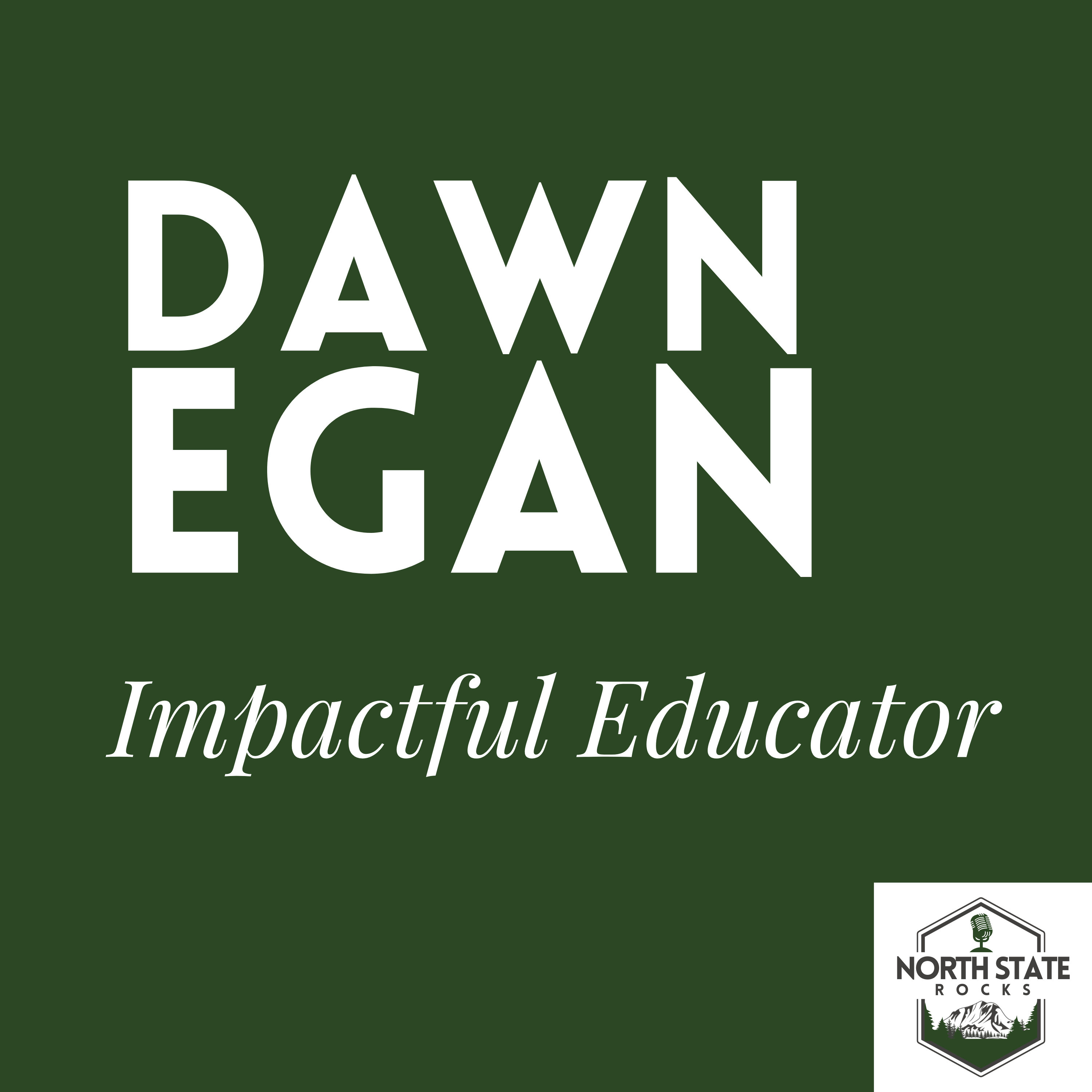
Dawn Egan's path to becoming one of Lassen High School's most impactful educators began with an entrepreneurial spirit in Fallon, Nevada. After earning her finance degree from University of Nevada, Reno, Egan opened her own computer store at just 21 years old, eventually growing the business to generate $200,000-250,000 annually.
“I had an opportunity to work for a bank and it just wasn't exciting for me,” Egan recalled during her recent appearance on North State Rocks. “The technology was exciting, my mom and I because she was very technical. We networked our house so you could type in basic 'dinner's ready' and it would show up in the other rooms.”
A blind date to a University of Nevada, Reno, basketball game changed everything when she met Joe Egan, her future husband. After selling her computer store, the couple moved to Susanville in 1998, where Dawn's expertise in proposal writing caught the attention of Lassen High School administrators.
Her first major success came with a half-million-dollar grant application for internet and computers. In a move that would be impossible today, Egan drove to Sacramento to watch officials review her application.
“I show up to CDE, they go through, I go through security, they go, 'why are you here?' I said, 'well, we're opening up digital high school today. I want to go watch them,'” she remembered. “They asked me a bunch of questions, and then they funded us. And I think it was because I was sitting in the room.”
That grant transformed Lassen High School, providing 300 computers and connecting all buildings with fiber optic cables.
“The teachers didn't even have a wired computer in their classrooms,” Egan noted about the school's technology state in 2000.
Today, Egan leads one of California's largest Future Business Leaders of America (FBLA) programs, with 250+ members. Her students consistently achieve remarkable success, including the highest AP graphics pass rates in the nation for both overall and Native American students. The program takes 30-40 students annually to compete at state levels in Southern California.
“We probably have 100 or 250 come to the meetings. We probably have 75 that compete, and then we end up with 30 to 40 that qualify at the state level,” Egan explained. Many students have never flown before these trips, making the experience transformative beyond academics.
The FBLA program emphasizes practical skills through initiatives like interview workshops with local Rotary members and business plan competitions sponsored by Plumas Bank.
“The feedback I get from those kids that I had those years are their amazing interviews,” Egan shared. “I have had people call me and say, 'hey, I just interviewed one of your FBLA past students and they killed it.'”
Of her students' post-graduation paths, approximately 60% attend two-year colleges, 15-20% go directly to four-year universities, and the remainder enter the workforce. Her own daughters, Riley and Emily, exemplify the program's success—both became registered nurses after completing CNAs in high school.
As Egan approaches retirement in the next five years, her legacy includes not just technological advancement and grant funding, but preparing rural students with confidence and skills to succeed anywhere their dreams take them.
Listen to the podcast at northstaterocks.com or on Apple, Spotify, Amazon, IHeartRadio, and Pandora.
